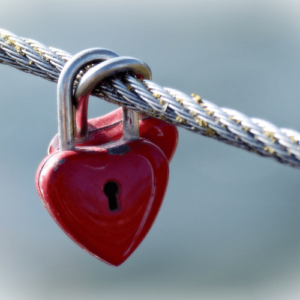Table of Contents
- 1 Brief Synopsis of the Book
- 1.1 In regards to the author
- 1.2 Introduction
- 1.3 Chapter 1
- 1.4 Unrequited Love: Females Face Additional Stigma
- 1.5 Chapter 2
- 1.6 Extremely In Love
- 1.7 Chapter 3
- 1.8 When Love Drives You Literally Insane
- 1.9 Chapter 4
- 1.10 Find Your Adele Momenta
- 1.11 Chapter 5
- 1.12 Conclusion
- 1.13 My Last Words About The Book
- 1.14 10 Lessons From The Book
Brief Synopsis of the Book
Unrequited is a psychological investigation of unrequited love that combines narrative, literary explication, and revelatory case studies.
Lisa A. Phillips fallen in love with a man who didn’t love her back the summer after she turned 30. Rapidly, she developed an unhealthy fixation. She was obsessive in her pursuit of him and her discussion about him.
After she broke into his building one morning, he was so afraid for his safety that he grabbed a baseball bat and dialed 911. As a result of her unrequited feelings, she had transformed into a person she hardly recognized, going to unhealthy extremes in her yearning.

Phillips examines the profound impact that obsessive love has on women in her novel Unrequited. She says that it’s important to recognize, appreciate, and harness it for development, but that it also carries the risk of going horribly bad if not managed properly.
Phillips weaves together her personal experience with candid interviews and extensive study from the fields of science, psychology, cultural history, and literature to explain the origins, development, and pervasive impact of love infatuation.
Phillips uncovers a strong, unsettling, and surprisingly ubiquitous phenomenon that goes beyond the stereotypical pictures of scary, fatally drawn psychos, male dreams of unrestrained feminine desire, and the cliches of self-help literature.
She sheds light on this enigmatic psychological experience, setting it in a rich and nuanced framework, and gives fascinating insights that will be of use to every woman who has felt the grip of unrequited, obsessive love and struggled to understand it.
She is a journalism professor at State University of New York at New Paltz. Lisa wrote a book called Public Radio: Behind the Voices. Her work has been published in the likes of the New York Times and the Boston Globe.
Lisa is a former radio journalist who has written for public radio outlets including NPR. She began writing about this in her acclaimed “Modern Love” column for The New York Times.
Introduction
Do you recall a time when your heart went out to someone who didn’t feel the same way about you? Who knows? Maybe it’s your hot coworker who hasn’t quite grasped the concept that you and she share the same planet.
Perhaps you have feelings for your best friend, but they prefer to keep things platonic. Unrequited love is painful under any conditions. It hurts so much when the person we love doesn’t return our feelings, so we try to avoid having that conversation.
This might cause us to act in irrational ways, going to great lengths to catch their attention or to convince them of something that is glaringly clear to us. (Although, thankfully, the majority of us don’t go as far as Joe Goldberg, the stalker in the frightening hit TV show You, with our unrequited passions.)
(Although, thankfully, the majority of us don’t go as far as Joe Goldberg, the stalker in the frightening hit TV show You, with our unrequited passions.)
Even if we don’t go so far as to become stalkers, many of us nevertheless squander our lives on the vein hope that the object of our affection would finally recognize that we were destined to be together.
This book takes an in-depth look at our delicate relationship with love obsession, documenting the subtle distinctions that inspire some people to become stalkers, while also offering us with helpful advice and socially acceptable strategies for dealing with our own obsessions
. Which brings us to the most terrifying aspect. You might not have as much of a gap as you think between comical Charlie Brown and Joe Goldberg.
Chapter 1
Unrequited Love: Females Face Additional Stigma
Have you ever heard, “he wants to feel like a man”? This is something that many females hear as early as middle school, when their assertive personalities are seen as a threat by insecure boys who are turned off by ladies who are comfortable in their own skin.

What this really means is that men “need” to have a sense of superiority. They “need” to feel powerful in order to feel like men.
Moreover, the author makes the observation that gender politics have a significant influence in our perception of unrequited love, which may appear unrelated to the substance of our book at first glance.
For instance, if a man’s romantic interest doesn’t return his affections, he is more likely to obsess over the situation or resort to stalker-like conduct.
Why? To this day, we still use terms like “the hunt” and “the chase” to describe men’s romantic endeavors, which imply that women are objects to be captured rather than rescued.
In comparison, this “hunter instinct” is looked down upon in females and seen as an example of unladylike conduct.
Therefore, males are lauded for “hunting down” their potential mates, whether by throwing pebbles at her window, following her to the airport and pleading with her to stay, or even dying for her.
(For a more up-to-date illustration, consider how most men do not find it frightening to listen to “Every Move You Make” by The Police.) Nevertheless, it’s automatically labeled as “Single White Female” conduct whenever women pursue the targets of their unrequited approaches.
It’s a vicious cycle: women are stereotyped as neurotic, schizophrenic, or attention-seekers, and they’re unable to pursue romantic relationships because they’re being criminalized by society for doing so. Unrequited love is not merely painful; these examples show that it is also unfair and sexist.
Chapter 2
Extremely In Love
Have you ever thought about how frequently the language used to describe love is that of a medical condition?
It is believed that falling in love is similar to falling down a hole; the suddenness and force with which you hit the bottom are meant to symbolize the intensity of your feelings.

You could also state that you are “lovesick” or “madly in love,” suggesting that your condition is similar to that of a mental disorder.
It’s possible that we’ll dismiss this as clever writing and move on if these ideas ever cross our heads. It may come as a surprise, though, to learn that “romantic obsession” is a clinically-recognized mental health disorder that has been successfully treated for decades.
The phenomenon is not limited to weird cases that involve stalkers, as one might assume. When it takes the form of sadness or an inability to eat after a breakup, it is often diagnosed as “lovesickness” and treated accordingly.
Sometimes all it takes to experience heartbreak is to reveal your feelings to another person and find out that they don’t return them.
Although this diagnosis has been there since the 1300s, it wasn’t until the late 1970s and early 1980s that psychologists and researchers started filling it out after realizing there was a gendered bias in the diagnostic’s origins.
In line with the sexist double standard, we examined in the last chapter, it has historically been accepted and even seen as an indicator of manhood when men were diagnosed with lovesickness.
However, male mental health experts often added a diagnosis of hysteria or moral insanity to women’s presentations of these same symptoms in an effort to suppress and punish them for having romantic impulses similar to those felt by men.
In 1979, psychotherapist Dorothy Tennov attempted to debunk the diagnosis by rebranding it as “Limerence” and characterizing it as a mental condition that resulted in an individual’s total emotional reliance on another person.
Whether or not the subject of the sufferer’s devotion shares such feelings is irrelevant, according to Tennov’s argument. When a person is suffering from a romantic infatuation, nothing else matters other than the object of their affection.
Biological anthropologist Helen Fisher elaborated on this idea, saying that love is a “drug” in its own right. According to her research on the subject of love, the same region of the brain is stimulated by romantic feelings as by cocaine use.
As such, it’s clear that the experience of love is highly addictive, much like a drug. When we’re in love, our brains receive a rush of feel-good hormones like endorphins and dopamine whenever we make physical contact with or dwell on the object of our passion.
Her findings inspired more scientists to join the study of romantic relationships. William Cupach and Brian Spitzberg, two eminent academics from all across the world, independently verified Tennov and Fisher’s results and found no reason to dispute them.
They continued on to clarify and draw the conclusion that it’s not always the case that a person’s sentiments for another person are at the root of a love infatuation.
Instead, it could be about something else as a result of what Cupach and Spitzberg term “goal linkage.” Based on their findings, goal linkage happens when we pair two distinct but related objectives—such as seeking love and overcoming low self-esteem or eventually practicing self-acceptance.
If we can succeed at the more manageable task at hand, perhaps we can also pull off the larger, more ambitious objective. Our desires drive our actions, but they aren’t constantly in the forefront of our consciousness. This makes it all the more difficult to let go of our romantic fixations, as we continue to misunderstand the nature of their grip on us.
Chapter 3
When Love Drives You Literally Insane
Now that we’ve covered the concept of lovesickness as well as the underlying science behind it, we can examine the darker side of romantic passion, the side that actually causes people to act like Hedra Carlson in Single White Female.
Only those who take rejection particularly hard will experience this. Possible that these people always struggled with a weak sense of identity.

Perhaps they were predisposed to be overly emotional, or perhaps they genuinely believed that they were destined for a life of hardship. It’s common for people to become extremely self-absorbed after experiencing love rejection, regardless of the circumstances.
Therefore, they have a hard time empathizing with the other person and realizing that, tragic as it may be, they may not be what the other person needs or wants at this time.
Instead, they focus solely on the catastrophe unfolding before them, becoming fixated on the never-ending loop of betrayal and suffering that defines their existence.
As a result, people tend to react either masochistically or narcissistically. If it’s the former, the dumped person would feel sad and hopeless.
They may get fixated on “keeping in contact” with the person they like by following them on social media, asking common acquaintances for updates, or engaging in any number of other meaningless behaviors.
As we covered in the last chapter, problems like goal-linking and limerence can make it difficult for people to stop engaging in behaviors like this, even when they are aware that the “connection” is not real or even the same as being in a relationship with that individual.
However, even if they experience feelings of unlovability or melancholy, those emotions rarely prompt them to give up their infatuation or seek out a more realistic romantic partner.
Contrarily, it is in the realm of narcissism that we begin to see the truly disturbing behavior that forms the stuff of thrillers. People who develop narcissism after experiencing love rejection are not typically diagnosed with the disorder at the outset.
It’s possible that rejection causes ordinarily reasonable people to resort to narcissism. However, those on the narcissistic end of the romantic rejection continuum may feel angry and desire to make their love interest suffer for rejecting them.
This is because unrequited love can significantly distort your perspective if you allow it to. And yet, individuals can be convinced that their actions are acceptable since they mirror conventional expressions of love interest.
It’s lovely to give your lover flowers when they’re at the office, for instance. However, such visits can be unnerving if the recipient isn’t expecting them, doesn’t recognize the visitor, and has no idea how the visitor learned where the recipient works.
If they have asked you to leave them alone, it’s even worse. The rational observer would see that this could be upsetting or frightening to others.
But if ego or love obsession are clouding your judgement, you might not realize when you’ve reached the level of terror that even Joe Goldberg experienced!
That’s why it’s so crucial to keep in good standing with those who are in a position to kindly provide you an objective appraisal of your conduct and facilitate your access to assistance if you need it, be it friends, family, or a therapist.
Chapter 4
Find Your Adele Momenta
Sure, everyone is familiar with Adele. Everyone adores Adele, right? Her genuineness and incredible singing ability have won us over.
However, we also admire her for the poignant ballads she wrote after a devastating separation in her twenties. Adele has remarked many times that if she hadn’t experienced the heartbreak of unrequited love, she never would have written the songs she has.

So, while it’s not true that hardship is necessary for creativity, Adele’s life shows what can happen when one finds a way to channel negative emotions into something positive.
From her career trajectory, it’s clear that Adele didn’t let her feelings of rejection turn her into a narcissist or masochist. Despite her desires, she didn’t go crazy and start chasing her ex.
And while she did feel sadness, she didn’t let it dominate her. The fact that she was able to transform her suffering into something constructive is extraordinary in and of itself, but also serves as an illustration of a crucial psychological principle.
Astonishingly, researchers have found that the creative process is remarkably comparable to the experience of falling in love.
This is because the brain regions responsible for love and inspiration are essentially identical. The pursuit of both a romantic partner and a creative outlet causes a surge of endorphins to be released in the brain.
Dopamine and endorphins are flooding your brain, making you feel good, and triggering the same addictive behaviors we’ve seen in situations like falling in love and using cocaine.
The best part about these parallels, though, is that successful creative endeavors always have a beneficial and useful end result.
Addiction to a romantic interest may lead you to do some dubious things, but a dedication to creating new and wonderful art can only bring you joy and satisfaction.
That’s why, according to the author, doing art is the best treatment for unfulfilled romantic feelings. Yes, you can’t go on a date with a painting or spend the night cuddling with a sculpture, and no, it won’t ever replace your dream partner.
To the contrary, it has the potential to infuse you with a fresh enthusiasm for life and help you reclaim your former glory.
Chapter 5
Conclusion
Almost everyone has felt the pain of loving someone who doesn’t return that affection at least once in their lives. It’s a special kind of heartbreak, and it often leads people down a path of sadness or obsession as they try in vain to change the other person’s feelings for them.

Many people’s lives and mental health suffer as a result of the poisonous beliefs and practices they adopt. Some even go as far as to become narcissistic stalkers.
This is why, the author says, it’s crucial to study the psychology of unrequited love and learn how to cope with it. Understanding its mental mechanisms will help us develop effective countermeasures.
As a result, the author suggests having your own “Adele moment” by channeling your enthusiasm into a creative endeavor, just like the famous singer did following her separation.
My Last Words About The Book
Examination without sympathy of “the persistence of love obsession” and how it affects women and how they are misunderstood.
Phillips argues that a woman’s obsession on a man who doesn’t love her back need not be wholly negative, and that understanding female romantic passion can help us better understand interactions and gender in a manner “those calmer emotions rarely accomplish.
” Phillips argues that lovelorn women, who, she writes, experience unreciprocated love differently than men and are underexamined, perhaps because only one out of ten stalkers is female, can ultimately benefit from the words of historical writers (such as Sappho, Ovid, Miguel de Cervantes, Carl Jung, and others), studies by behavioral, social, and investigative psychologists, and large number of illustrations from women (both straight and gay) who shared their experiences with her.
The author provides a sympathetic, in-depth look at what the “beloved” means to the spurned woman, using language and terminology approachable to non-specialists.
Phillips does the right thing by admitting that “aggressive unwanted sexual pursuit” is harmful to all parties involved and going into detail about her own experience as an undesired woman who engaged in such invasive conduct.
Some of the women’s admittedly violent behaviors are shocking and severe, but the author makes a convincing case that, when in such an elevated psychological response, women can refocus their aggression toward achieving a goal.
Desiring somebody you can’t have doesn’t have to be miserable or terrible when the beloved becomes a source of inspiration.
10 Lessons From The Book
“Unrequited” refers to a situation in which one person has romantic feelings for another person who does not reciprocate those feelings.
This can be a difficult and painful experience, but there are some lessons that can be learned from it.
- it is important to understand that rejection is not a reflection of your worth as a person. Just because one person does not reciprocate your feelings does not mean that you are not worthy of love or that there is something inherently wrong with you.
- it is important to practice self-care and self-compassion during this difficult time. This can include things like engaging in hobbies, spending time with friends and family, and seeking support from a therapist or counselor.
- it is important to remember that there are many different types of love and relationships, and that not all of them will be right for you. It is important to keep an open mind and not to close yourself off to other potential relationships or connections.
- , it is important to remember that time can heal wounds. With time and perspective, it is often possible to move on from unrequited love and find new connections and opportunities for happiness.
- It’s important to set boundaries for yourself. This may mean limiting or cutting off contact with the person you have feelings for, or it may mean taking a step back from the friendship or relationship if that’s possible.
- It’s important to focus on yourself and your own growth. This can be a time to work on yourself and your own goals, whether that’s in your career, education, or personal life.
- It’s important to remember that unrequited love is not unique to you. Many people experience unrequited love at some point in their lives, and it’s something that can happen to anyone.
- It’s important to remember that unrequited love doesn’t have to define you. While it may be a difficult experience, it’s just one part of your life and does not have to define who you are.
- It’s important to remember that healing takes time. It’s okay to grieve the loss of this relationship and to take the time you need to heal. It’s important to be patient with yourself and to give yourself the time and space you need to process your feelings.
- Lastly, unrequited love can be a great teacher. It can teach us a lot about ourselves, what we want and what we don’t want in a relationship, which can make us stronger, more self-aware and better equipped to make better choices in the future.

Buy this book @ Amazon: Unrequited: The Thinking Woman’s Guide to Romantic Obsession
Read more book summaries: “If a human has no direction, every wind is a fresh breeze” ― lenfantvivant
“Thought is only an abstraction representing a fraction of what is.” ― Lenfantvivant
”Widen The Window”(2019) Book Summary
Summary of “Atomic Habits” (2018)

